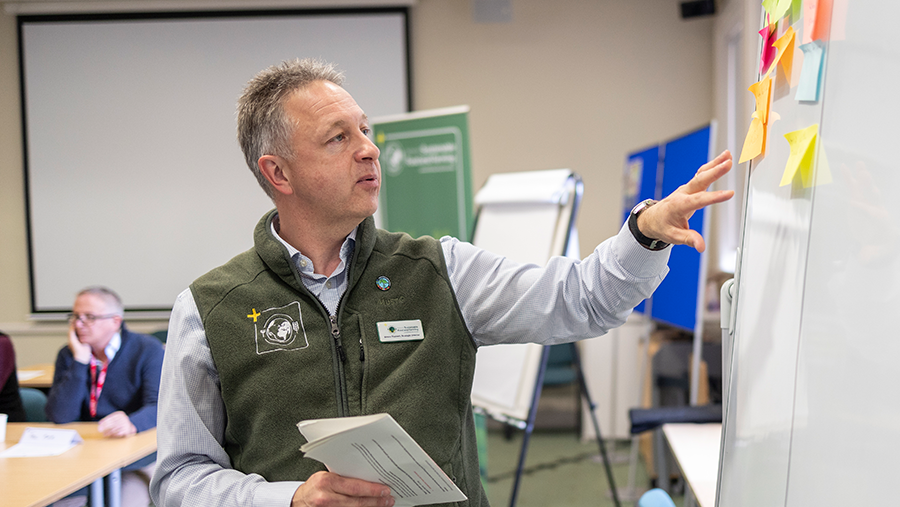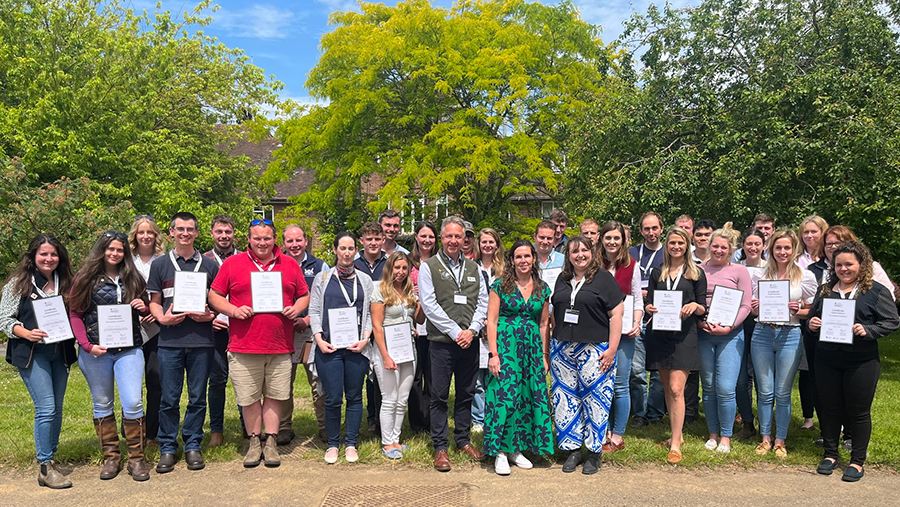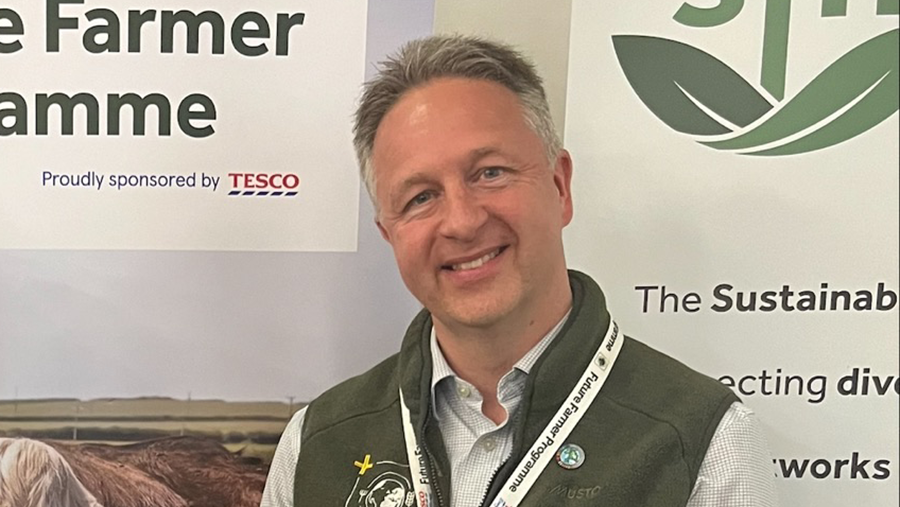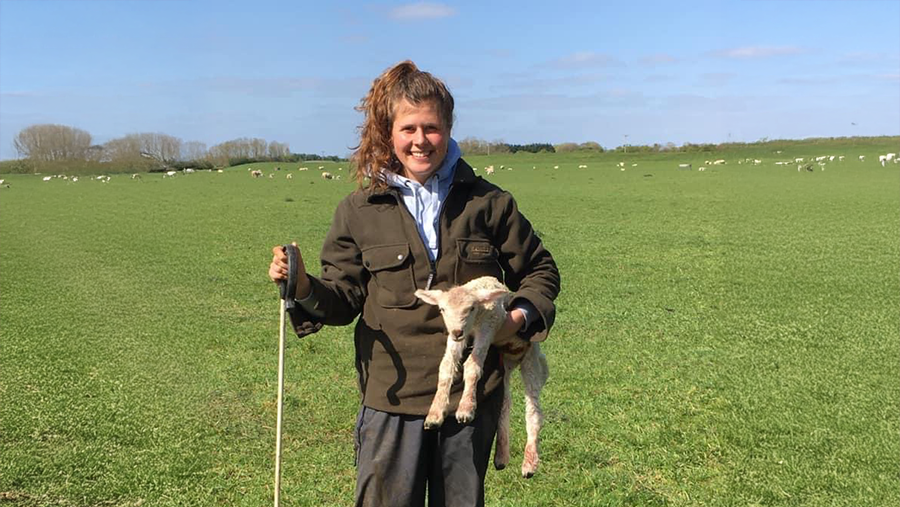Advertiser content
Fresh talent and skills key to sustainable future for farming
Industry-wide action is required to attract new talent into the food and farming sector.
A skilled and engaged workforce is essential for supporting farming’s transition to a more sustainable future, as the industry adopts new practices and implements change.
With technology advancing and environmental challenges mounting, there’s a need to develop skills, address any outdated perceptions of the industry and create attractive career paths for the next generation.
Additionally, as the industry continues to innovate, there’s also work to be done to better showcase the exciting opportunities in cutting-edge technology, data analytics and robotics in farming, as well as a growing need to advance practical skills and business acumen.
While such a diversity of roles puts training and education in the spotlight, it also emphasises the supply chain’s role in showcasing career opportunities, offering hands-on experience and developing a better and broader understanding of this dynamic sector.

A roundtable discussion as part of Tesco’s Greenprint for UK Farming report
Tesco’s ‘Greenprint for UK Farming’ report suggests that industry morale is being impacted by a lack of public awareness about the industry and the role farmers play in producing food.
In fact, 88% of the farmers surveyed cited that they were worried about a negative public perception of farming and its environmental impact, which in turn could be deterring potential recruits. Farmers were also concerned that the wider public needed a deeper understanding about the realities of running a farm.
These issues are being addressed by educational establishments such as Harper Adams University in Shropshire, as well as through initiatives being undertaken by Tesco and the wider industry. These aim to champion farmers and equip them with the skills they need to change and spearhead progressive businesses.
To this end, the Tesco Future Farming Programme takes up to 70 young farmers each year and provides a comprehensive nine-month training schedule that covers three main areas – sustainability, leadership and profitability.

Tesco Future Farmer Programme – 2024 alumni
“The programme helps candidates with their personal development as well as their business plans, challenging them to thrive,” explains Simon Thelwell of Harper Adams University’s School of Sustainable Food and Farming.
“Delegates join the programme because they are concerned about the agricultural transition and recognise that the future of farming looks quite different. Being part of the Tesco programme helps them to visualise that, create supportive networks and move forward.”

Simon Thelwell, Strategic Director, Harper Adams University’s School of Sustainable Food and Farming
At the university, the Harper Forward curriculum is being designed across a wide range of courses to reflect a changing industry and to meet the future needs of employers, he reveals.
“It will influence the type of courses we will be offering and how we will be teaching them. We need to think very differently about how careers in the sector will evolve, so that the workforce is prepared and the companies that employ them remain competitive.”
Appealing to candidates with little prior experience of farming is key, with school liaison, apprenticeships, mentoring and hands-on experience all helping to bridge any gaps.
Getting young people to see and experience the sector for themselves has also been instrumental in achieving results.
Jemma Flitton, a Sustainable Agriculture Specialist with Tesco, agrees that the careers advice she received at school didn’t include the food and farming sector, which is often portrayed as just needing practical farm workers.
Her advice to young people with an interest in agriculture or a curiosity about its potential is to be prepared to try something new and consider the various entry routes on offer.
“You don’t have to be a university graduate or have a farming background. There are other ways of starting a fulfilling career in agriculture and the variety of roles is endless.”

Jemma Flitton, a Sustainable Agriculture Specialist with Tesco
Jemma believes there is a disconnect between farming and the wider public but adds there is an opportunity to narrow that, through communicating current initiatives on the environment and nature in addition to a better understanding of the place for healthy food in society.
“Retailers have a platform to push a positive message about the industry, educate consumers and show how farming can have a meaningful impact,” she says. “Working in the supply chain has opened my eyes to how much can be achieved.”
New talent, better skills and changed perceptions are all components that will allow the agri-food sector to develop a sustainable system that protects the planet.
Apply now for the 2025/26 Tesco Future Farmer Programme, run by Harper Adams University’s School of Sustainable Food and Farming.
Provided by
Tesco plc is a British multinational groceries and general merchandise retailer headquartered in the United Kingdom at its head offices in Welwyn Garden City, England. The company was founded by Jack Cohen in Hackney, London, in 1919.

